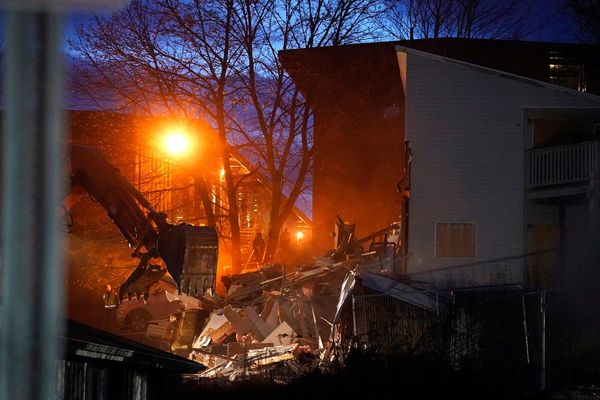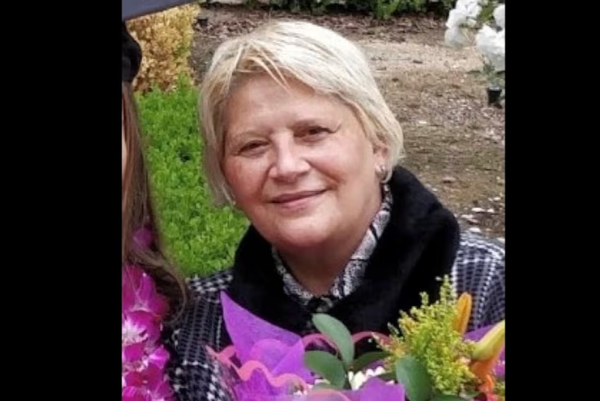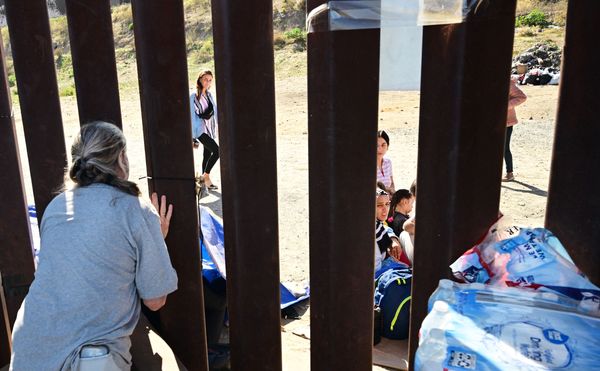
Following a flurry of selective UK government briefings promising a “groundbreaking” new deal under Rishi Sunak which would curb the numbers of people arriving by small boats, a £63m UK-French deal has arrived.
And much like the last three bilateral agreements over the past four years, which promised to break the “evil” people-smugglers’ model, this one also concentrates on bolstering law enforcement along the French coastline, funded by UK taxpayers.
The deal has not addressed one of the main drivers of demand for small boat crossings: a lack of legal routes for those who wish to apply for asylum in the UK, forcing many to seek irregular routes instead.
And it has not focused on the huge internal pressure on the asylum system – the backlog of more than 100,000 outstanding asylum claims waiting to be processed or the £7m a day bill for hotels where many claimants reside.
As some recent articles have claimed, the deal signed by the home secretary, Suella Braverman, and her French counterpart, Gérald Darmanin, will see UK officers embedded with their French counterparts in northern France.
But the government has not managed to get what it sought – UK officers with enforcement powers on the ground in Calais and Dunkirk, cracking down on inflatable dinghies.
Instead, as the deal itself points out, UK officials will be there “without prejudice to sovereignty” to “increase joint understanding of the threat through first-hand observations”. So UK border force officers will watch their French counterparts at work, but can do little else.
Successive home secretaries – Theresa May, Priti Patel and now Braverman – have expressed support for a French “returns deal” – an agreement which allowed the UK to send people arriving in the UK by small boats to be sent back.
In the aftermath of last November’s tragedy – when 27 people died after their inflatable boat sank – the then PM Boris Johnson committed to “immediate work” to strike a bilateral returns agreement between Paris and London, as well as discussions on a UK-EU agreement.
But Monday’s agreement makes no “returns” promise. And Home Office sources confirmed that there was no expected deal on an EU-wide scale either.
Instead, there is a promise of 40% more French officers on French beaches over the next five months; an expansion of an intelligence cell working on smuggling gangs, but no explanation of what this might mean; and a taskforce focused on reversing the recent rise in Albanian nationals trying to cross – more than half of whom successfully apply for asylum in the UK.
Peter Walsh, senior researcher at the Oxford Migration Observatory, said the deal shared similarities with others signed by previous home secretaries.
“It appears to be more of the same. The overall enforcement-focused approach continues and the government has avoided looking for new ways for those seeking asylum to apply to come to the UK.
“What is not in the deal is the internal challenges of the asylum backlog – the time it takes to process applicants and the use of hotels – and they are central to systemic problems. Because it is taking so long to process each application, the system is under immense pressure,” he said.
The costs of policing the French coast to the UK continue to spiral. The UK spent £114m between 2015 and June 2020, according to a parliamentary answer. In July 2021, a further £55m a year was promised by Patel; and this year, there is a new pledge of £63m.
But the deal does represent a return towards usual diplomatic relations with Paris. The former prime minister, Liz Truss, said this summer the “jury was out” on whether President Emmanuel Macron was a friend or foe; a government statement says Monday’s agreement “will be the foundation for a more ambitious and comprehensive partnership between our two countries, looking ahead to the UK-France leaders’ summit next year”.
There are also signs that the government has toned down previous rhetorical flourishes while addressing cross-Channel migration. Patel pledged to make the Channel route “unviable” while Johnson said it would “break the model” of those travelling in small boats.
Braverman, who a few weeks ago said she had “dreams” of deporting asylum seekers to Rwanda, on Monday tempered expectations over this latest agreement. “It’s not going to fix it overnight. It’s not a silver bullet,” she said.







